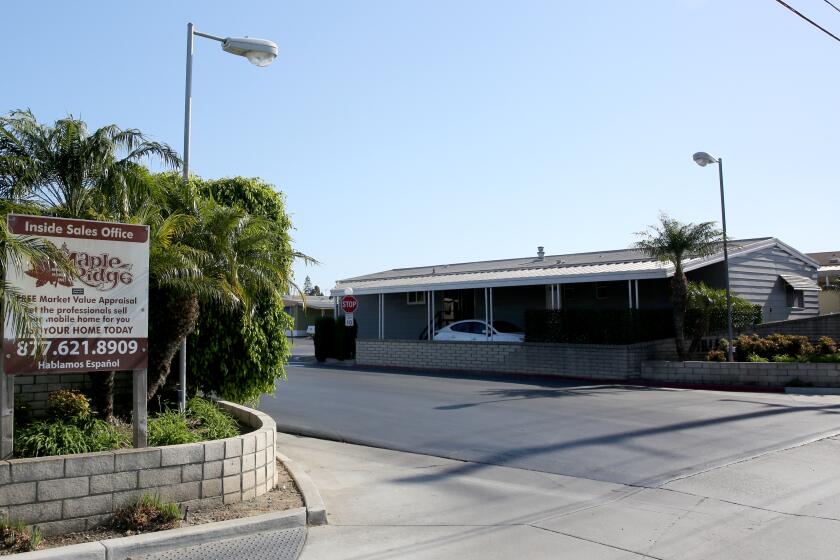Neighbors Have the Right to Fight Liquor-Store Blight : South L.A.: Owners of burned-out markets can be bought out; it’s done elsewhere.
- Share via
In community meetings throughout South Los Angeles, the hot topic of conversation is how the city will be rebuilt. One consistent theme is the impassioned desire that the corner liquor stores destroyed in the days of unrest not be rebuilt.
In just one City Council district, the 8th, there were almost as many liquor outlets as there are in the entire state of Rhode Island. And throughout the area, liquor is aggressively advertised with themes that play to the frustrations of inner-city life. Both the excessive advertising and the number of outlets create a climate for alcohol use that would be unacceptable in white middle-class communities.
Adding to the problem is the type of alcohol sold in the corner stores. High-alcohol content wine and beer (in particular, malt liquor) are virtually the only kind sold in the inner city. Fortified wines like Thunderbird are priced and packaged for the poor ($1 for a 5-oz. bottle), and many of these problem stores allowed customers to “run tabs” as a system of credit, deducting the bill while cashing monthly welfare and disability checks and accepting food stamps for the purchase of alcohol.
One should not be surprised, therefore, that the incidence of alcohol use and its related problems is high in these communities. Alcohol-related disease is one of the most serious health concerns in African-American and Latino populations. According to the National Institute on Alcoholism and Alcohol Abuse, alcohol “contributes to 80% of homicides, and 60% of injuries--the two leading causes of death among black men ages 25-44.”
The Community Coalition for Substance Abuse Prevention and Treatment conducted a door-to-door survey of residents in the Broadway/Manchester area, in which more than 60% of the 385 respondents reported witnessing alcohol sales to minors in neighborhood liquor stores. Yet, because of Gov. Pete Wilson’s drastic budget cutbacks, the state Department of Alcoholic Beverage Control has had to dismantle its enforcement apparatus.
Community concerns also extend to the environment around the stores, where drinking often creates a climate that fosters gambling, theft, drug sales and violent assaults.
Any community has the right to remove a blight that contributes to crime, disease and a depressed quality of life. The problem here, as some people see it, is that this right is in conflict with a property owner’s right to do business.
It is not the desire of the community coalition and others concerned about this issue to drive business owners into bankruptcy. It would be a tragedy, however, to rebuild and replace the very structures that help fuel the rage in South Los Angeles.
There is a proven alternative available, one that would make a positive contribution to health and prosperity. Community residents and leaders are currently working on proposals that would offer incentives and compensation to store owners to leave the liquor business and reduce the number of outlets. For example, several small stores might merge into an improved modern food market with one consolidated liquor license instead of three or four. Liquor licenses also might be purchased from owners who are willing to get out of the business. In 1973, New Jersey raised fines for driving under the influence and put the extra money in a special fund to purchase liquor licenses, which were then retired.
The mission of the community coalition is to address the entire constellation of events that contribute to drug and alcohol problems by empowering the community. Decreasing the availability of alcohol is only one component of a comprehensive approach to the problem, but it is an important one.
Communities like South-Central are often criticized for lacking values and allowing alcohol and drug problems to flourish. And residents and community organizations who are acting now to address the problem should not be criticized as anti-business and prohibitionist for not wanting liquor stores to return to the area. To recover from the tragic events of last month, Los Angeles must harness the creative energy and ideas of the communities most affected. To rebuild and improve our quality of life, we will need to take bold steps.
More to Read
Sign up for Essential California
The most important California stories and recommendations in your inbox every morning.
You may occasionally receive promotional content from the Los Angeles Times.










